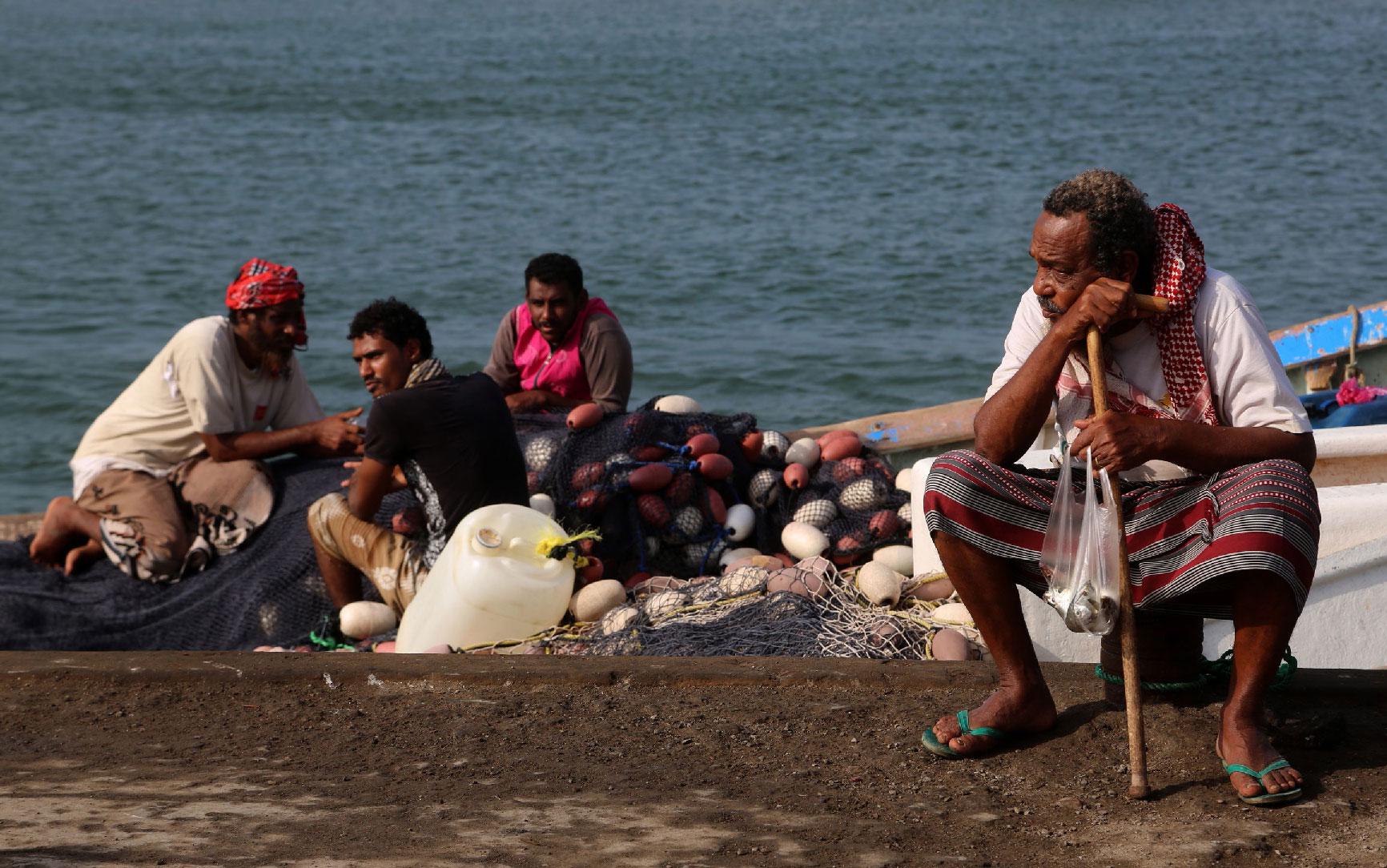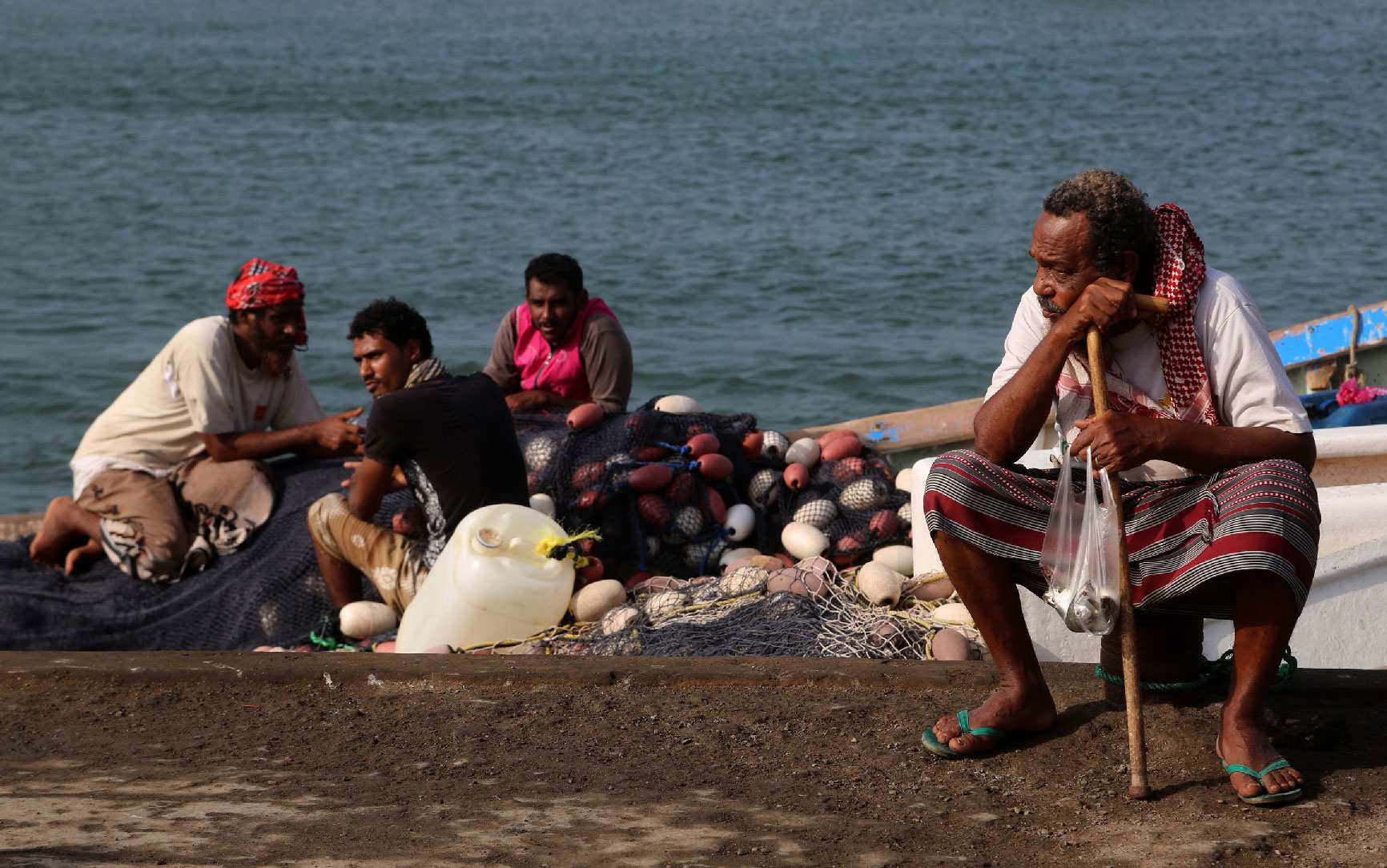Yemeni fishermen can starve at home or die at sea
HODEIDAH - Ali Mohammed has been fishing off Hodeidah since he was a child, but for the first time in 30 years, the Yemeni father of eight cannot feed his family.
He and his fellow fisherman are facing "tragedy", he said as he emptied his net at a harbour in the battle-scarred Red Sea city.
"We are really scared to go out to sea, to the extent that we say goodbye to our children every time we leave the house because we do not know if we are coming back."
Hodeidah, home to Yemen's most vital port, has been the target of a fierce pro-government offensive to retake it from Huthi rebels who have held it since 2014.
The fishing harbour where Mohammed landed his catch lies just one kilometre (less than a mile) from the frontlines.
The fighting poses a mortal threat to an industry the World Bank says employed some 10,000 registered fishermen in Hodeidah and the surrounding province before the war.
Under heavy international pressure, loyalist forces backed by a Saudi-led military coalition have suspended a five-month battle to seize Hodeidah.
But the United Nations said Tuesday that operations at the vital port had fallen by nearly half over the past two weeks.
The coalition says its air and maritime embargo is needed to prevent Iran delivering weapons to the Huthis.
The danger of being shot or intercepted at sea has forced fishermen to stay close to shore.
"A rocket could strike you and you wouldn't know where it came from," Mohammed said.
"There are fishermen still missing at sea... they went out and never came back."
'We are terrified'
In the fish market near the harbour, white marble basins that were once filled to the brim with fish now hold what very little comes from the day's catch.
A few customers scurry behind anyone who has managed to catch fish that day, while the lucky fishermen who come back to the market with a big catch hawk their goods from the backs of trucks or carts.
"We used to have a lot more fish in the past because we were able to go further into the sea," Mohammed Salem Adwein said.
Fishing boats from the port used to go out as much as 100 nautical miles (185 kilometres) into the Red Sea.
"Now we go about 20-25 nautical miles (37-46 kilometres) out, and we are terrified," he said.
"The longer the conflict, the more difficult it is for the fishermen."
Attacks on the fish market and a hospital in Hodeidah killed at least 55 civilians and wounded 170 in August, according to the International Committee of the Red Cross.
Both sides denied responsibility for those attacks, but shrapnel damage can still be seen on the walls of the market -- some going right through spray-painted Huthi slogans.
Fear of total siege
Different coloured fishing boats sail out to sea, one after the other. As soon as one returns, at least six men jump on board to unload the day's catch.
Written on one of the boats is a message of hope: "The believer is like a green leaf, he will not fall no matter how the storm blows."
But as the war shows little sign of waning, Hodeidah residents fear the city could be completely besieged.
UN agencies say 14 million Yemenis are already at risk of starvation and the full closure of Hodeidah port would further exacerbate the humanitarian crisis.
But despite the war, which has left more than 10,000 people dead, Ali Mohammed does not think of changing his job.
"Where are you going to go look for a job when you don't even have two days to spend with your children," he says.
"People are tired. I am tired. I swear to God I don't even have rice in the house."
Tor al-Amer, who works at the docks, said Hodeidah's fishermen face a bitter choice.
"A fisherman will starve to death if he stays home, but if he goes out to sea he will die from being bombed," he said.



